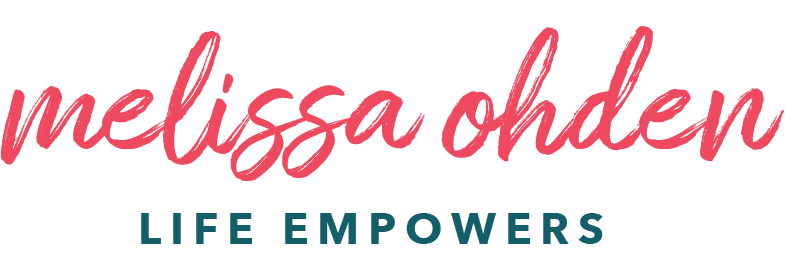“All the art of living lies in a fine mingling of letting go and holding on”—Havelock.
I’m a recovering control freak. The heady feeling of having power over my life, of any circumstance, great or small, however false in reality it truly was, helped me to get through some of the most difficult years of my life. Even though, in my heart, I knew that God was in control over all of my life, I managed to still clench my fingers tightly over those circumstances that I felt were within my reach, those circumstances that I was scared to give entirely over to Him.
If I have such a strong faith, why didn’t I just “let go and let God” as we so often say? What was I so scared of?
I was scared of my life being out of control.
Our nature as human beings is to want to have control over our lives.
Even the American dream, in and of itself, is about controlling your own destiny, fulfilling your every dream by pulling yourself up by the bootstraps.
It’s a part of our collective conscious as Americans.
We are a nation of “I’s,” as in I can do it all on my own.
Layer on top of this basic nature the traumas, the hurt and disappointments, the sufferings that we experience, and we are left wanting to hold onto something, anything, that might make us feel like we can have it OUR way, instead of it having its’ way with us.
From the day that I found out that I was an abortion survivor, I felt powerless over what had happened to me.
Sure, God was utterly amazing and saved me from the clutches of death. Sure, I could do anything that I set my mind to and achieve great things in my life through Him, but I couldn’t undo the traumatic event that had been done to me.
I couldn’t wish it away, I couldn’t pray it away, and I had to live every day in a world where mainstream society talked about what happened to me and what happens every day to thousands of children who indeed suffer much greater than I did, as if it’s a simple matter of choice.
As a vulnerable child in my biological mother’s womb, I had no choice, I had no control. So in order for me to survive in those darkest years of my life after finding out the truth, I tried to be the one in control.
I had learned what happened when someone else had control over my life, and it almost killed me, so why would I put myself in that position again?
It tells me so much about my journey in moving from surviving to thriving, and ultimately, overcoming, when I can write those statements above and both feel the memories of those thoughts and feelings, seared deep within my consciousness, and yet, simultaneously, read them and question how I could have ever felt that way.
That is the power of healing. That is the powerful transformation of Christ.
It always brings a smile to my face when my adoptive parents are interviewed about what I was like growing up. Like many loving parents, mine always remark that I was perfect. Bless them! I was SO NOT perfect!
What I was, however, was very in control of what I let others see on the outside and know about who I was on the inside.
As long as I kept up the façade of appearing “perfect” on the outside and coping fairly well, under the circumstances of finding out the truth about my life, then no one would know how broken I was on the inside.
If I appeared to be totally in control, then no one would know how totally out of control I not only felt, but I truly was.
As I candidly discuss in my book, You Carried Me, and as I share with audiences around the world, my emotional pain manifested itself physically into an eating disorder, alcohol abuse, and unhealthy dating relationships in the initial years following the disclosure about my survival. Yet looking at me, most people, including my own parents, never could have guessed the depth of the turmoil that I was going through.
This experience with control further cemented in my mind that although God was in control with some of my life, like my “mere” existence, for example (just poking fun at myself here and how flawed my thinking was at the time), my own control proved to be quite useful and successful.
If I could keep my pain from seeping out and keep people from getting in, then I would keep exerting my sense of control whenever and wherever I could.
It’s difficult to condense the contents of 10 years of struggle, of learning and growing and healing into just a few paragraphs, but what I can tell you briefly is this: the more in control I tried to be, the more out of control I actually felt.
And in those instances of my life where I turned everything over to God and I knew that I wasn’t in control, although I initially felt anxious about letting go, I always ended up feeling great peace in the long run.
I hope this revelation makes sense to you, and that if you haven’t experienced this yet, yourself, that you loosen your grip and truly allow God to move in your life.
In my work as a therapist, it was always interesting to see how memories were formed for my clients around certain events and individuals in their lives—it always told me a lot about them. So, it goes without saying that it says a lot about me when some of my most palpable memories center around the issue of control.
————————————————————Check Back for Letting Go, Part 2, coming soon….

Recent Comments